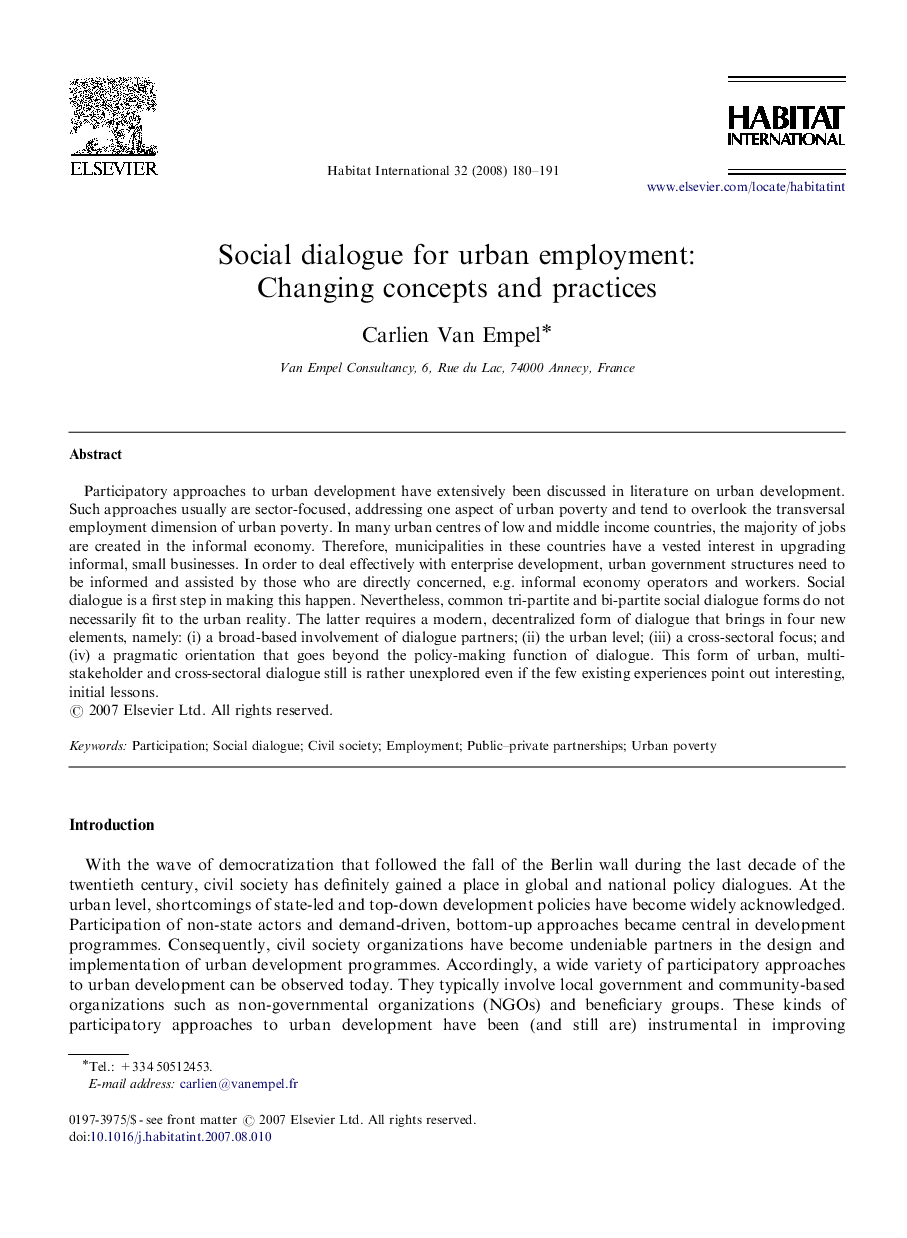| Article ID | Journal | Published Year | Pages | File Type |
|---|---|---|---|---|
| 1048498 | Habitat International | 2008 | 12 Pages |
Abstract
Participatory approaches to urban development have extensively been discussed in literature on urban development. Such approaches usually are sector-focused, addressing one aspect of urban poverty and tend to overlook the transversal employment dimension of urban poverty. In many urban centres of low and middle income countries, the majority of jobs are created in the informal economy. Therefore, municipalities in these countries have a vested interest in upgrading informal, small businesses. In order to deal effectively with enterprise development, urban government structures need to be informed and assisted by those who are directly concerned, e.g. informal economy operators and workers. Social dialogue is a first step in making this happen. Nevertheless, common tri-partite and bi-partite social dialogue forms do not necessarily fit to the urban reality. The latter requires a modern, decentralized form of dialogue that brings in four new elements, namely: (i) a broad-based involvement of dialogue partners; (ii) the urban level; (iii) a cross-sectoral focus; and (iv) a pragmatic orientation that goes beyond the policy-making function of dialogue. This form of urban, multi-stakeholder and cross-sectoral dialogue still is rather unexplored even if the few existing experiences point out interesting, initial lessons.
Related Topics
Social Sciences and Humanities
Social Sciences
Development
Authors
Carlien Van Empel,
